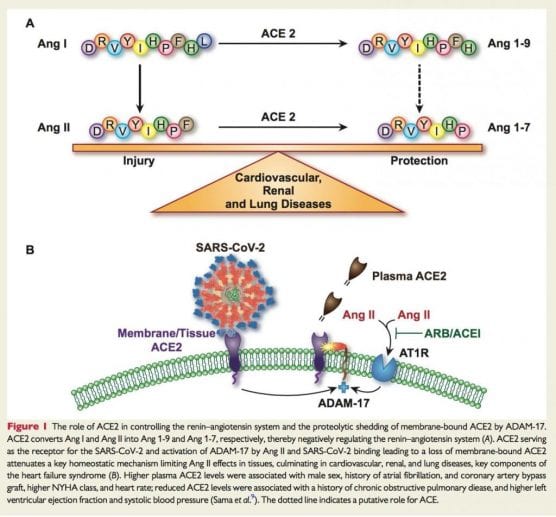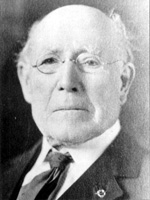Higher concentrations of a key enzyme found in men’s blood could explain why men are more vulnerable to COVID-19 infection than women, according to results of a large study published Sunday.
The findings, published in the European Heart Journal, detail the angiotensin-converting enzyme 2 (ACE2) in organs such as the lungs, kidneys and heart. The enzyme acts as an enabler for COVID-19, allowing it to infect healthy cells.
Dr. Adriaan Voors, lead author and professor of cardiology at the University Medical Center Groningen in The Netherlands, explained how the enzyme helps the unique coronavirus enter the body.
“ACE2 is a receptor on the surface of cells,” he said. “It binds to the coronavirus and allows it to enter and infect healthy cells after it is has been modified by another protein on the surface of the cell, called TMPRSS2. High levels of ACE2 are present in the lungs and, therefore, it is thought to play a crucial role in the progression of lung disorders related to COVID-19.”
Voors and his team, who were already studying the differences in blood between men and women affected by disease, said they were able to gather results quickly after the beginning of the pandemic.
“When we found that one of the strongest biomarkers, ACE2, was much higher in men than in women, I realised that this had the potential to explain why men were more likely to die from COVID-19 than women,” said study author Dr. Iziah Sama of UMC Groningen.
The massive study looked at ACE2 concentrations in blood samples of two groups of heart failure patients in 11 European countries. The first group, consisting of 1,485 men and 537 women, was used to test the scientists’ hypotheses. The second group, with 1,123 men and 575 women, was used to validate the researchers’ findings.
The scientists found no evidence that drugs given to heart failure patients, such as angiotensin receptor blockers (ARBs), were responsible for higher concentrations of ACE2.
“To the best of our knowledge, this is the first substantial study to examine the association between plasma ACE2 concentrations and the use of blockers of the renin-angiotensin-aldosterone system in patients with cardiovascular disease,” Voors said.
He added, “We found no evidence that ACE inhibitors and ARBs were linked to increased ACE2 concentrations in plasma. In fact, they predicted lower concentrations of ACE2 in the validation cohort, although we did not see this in the index cohort.”
Voors said the research team was less sure about mineralocorticoid receptor antagonists (MRAs), drugs that help decrease blood pressure.
“The effect of MRAs on ACE2 concentrations is not clear, as the weak increase in concentrations in the [first group] was not seen in the [second group],” Voors said. “Our findings do not suggest that MRAs should be discontinued in heart failure patients who develop Covid-19. They are a very effective treatment for heart failure and the hypothetical effects on viral infection should be weighed carefully against their proven benefits.”
The researchers noted that high concentrations of ACE2 were also found in the male testes, leading them to think regulation in the testes might explain elevated risk for men.
As of Sunday, more than 4 million people have been infected by the coronavirus globally and over 282,000 people have died. In the U.S., over 1.3 million have been infected, with more than 79,000 deaths.
— By Jon Parton, CNS
Like this:
Like Loading...
Related





 Tweet This
Tweet This Facebook
Facebook Digg This
Digg This Bookmark
Bookmark Stumble
Stumble RSS
RSS


























REAL NAMES ONLY: All posters must use their real individual or business name. This applies equally to Twitter account holders who use a nickname.
0 Comments
You can be the first one to leave a comment.